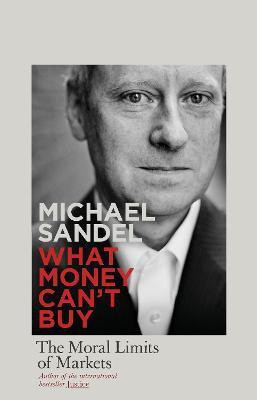What Money Can't Buy - The Moral Limits of Markets(English, Paperback, Sandel Michael J.)
Quick Overview
Product Price Comparison
What Money Can't Buy: The Moral Limits of Markets discusses where the market mindset should stop, where it has no legitimate role to play. Summary Of the Book In a world that is becoming increasingly commercialized, where should one draw the line? That is what this book, What Money Can't Buy: The Moral Limits of Markets looks into. At a time when everything is commoditized and given a price tag, the author asserts that there are some things that cannot be given a value and put up for sale. The power of money and the market mentality has its place. But it should not pervade all aspects of society. For instance, the author points out to the trends of buying entry into an ivy league college, and prisoners being able to buy facilities to upgrade their prison cells and live in comfort. Likewise, the practice of paying money to influence policy decisions, the idea of buying body organs and so on. While there might be arguments about leaving these to the choice of individuals, What Money Can't Buy: The Moral Limits of Markets makes a point about how this divides the society not just on moral grounds, but also between those with the ability to purchase these luxuries, and those who do not have the money to do so. The idea of paying a child to perform better at school, to give money to a person to try out risky experimental drugs; all these overlook the transgression of moral and ethical codes that human societies long depended upon. The author presents his arguments against applying market codes to all aspects of life from two viewpoints. The first is the tangible or material one, of economic and social inequality. If everything in life can be bought and sold, the rich will have access to everything that makes life better, like good education, healthcare and lifestyle, while those who cannot afford them will be condemned to stay in that state. The other one is the idea of moral corruption, of ethical codes being devalued. Commercialization of all aspects of life means that these values lose their meaning. More and more, people will become convinced that there is no benefit in being socially responsible, as money can buy anything. Those who have money will buy the good things, those who do not, lose their incentive to be responsible citizens in a society that largely ignores them. About Michael Sandel Michael Sandel is a Professor at Harvard University. He is also the author of Justice: What's the Right Thing to Do? and Liberalism and the Limits of Justice. Michael Sandel was born in 1953 in Minnesota. He graduated from Brandeis University and earned his doctorate from Oxford University. He is the Professor of Government at Harvard University. He is renowned for his ŌĆśJusticeŌĆÖ course that he has been conducting for over two decades now. In 2002, he became a Fellow of the American Academy of Arts and Sciences. The honors he has received include Top Global Thinker from Foreign Policy magazine.


